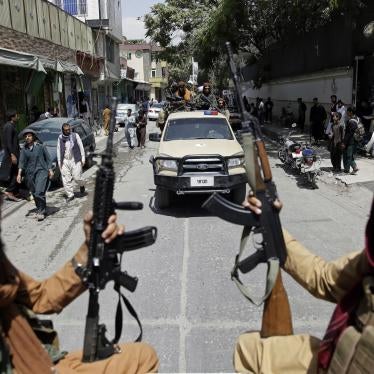Afghanistan: Taliban Trample Media Freedom
Journalists Face Arrest, Torture; Journalists in Exile at Risk of Forced Return

The Taliban have imposed policies severely violating rights—particularly those of women and girls amounting to the crime against humanity of gender persecution. They have prohibited girls and women from education beyond the sixth grade, and have severely restricted women’s employment and freedom of movement by enforcing strict dress codes and often requiring women to travel with a male guardian. Those who do not comply face detention.
The Taliban have enforced broad censorship and arbitrarily detained and tortured journalists and activists. They have also carried out arbitrary arrests, torture, and public executions. LGBT people continue to face systematic persecution.
Islamic State militants have carried out bombings targeting ethnic Hazara Shia and others, killing and injuring hundreds.
The Taliban’s discriminatory policies, a sharp decline in foreign donor funding, and large-scale forced returns from Iran and Pakistan have left millions of Afghans in need of humanitarian assistance.

Journalists Face Arrest, Torture; Journalists in Exile at Risk of Forced Return

End Deportations, Coercive Police Practices While Taliban Abuses Persist



Amended Regulations Will Permit Action Against Rights Abusers, Promote Accountability

First Competition Since Taliban’s Ban on Women and Girls in Sports

Journalists Face Arrest, Torture; Journalists in Exile at Risk of Forced Return

Mechanism Will Investigate Grave Abuses by All Actors

Arbitrary Restrictions Throttle Access to Education, Media, Banking, Information

Claims of ‘Morality’ Used to Bolster Repression

After Four Devastating Years, Where is the Global Outrage?

Demand Action to End Escalating Israeli Crimes against Palestinians

HRW Oral Statement - EID with the SR on Afghanistan - HRC60
